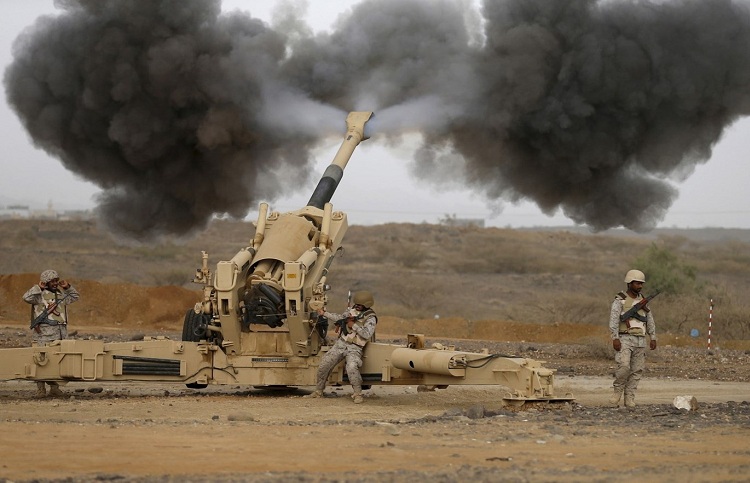The Diplomat
The environmental organization Greenpeace has filed an appeal with the Supreme Court against the Government’s refusal to report on the sale of arms to Saudi Arabia.
According to a press release issued last Wednesday by the organization, Greenpeace presented a request for information to the Government about the shipment of Spanish carrier systems, model Alakran, detected in the conflictive border between Saudi Arabia and Yemen, “where a bloody war has been waged for years in which human rights violations are constant and in which thousands of civilians have lost their lives”.
“It should be noted that Greenpeace made this request for information to verify the legality of these arms exports, based on the recognition by the European Court of Human Rights of the role of NGOs as ‘watchdogs of governments’, for which it recognizes the right of access to information as an instrumental right to exercise the fundamental right to freedom of expression and information,” it continued.
After the Government’s refusal to inform about the licenses for the export of war material to Saudi Arabia, Greenpeace filed an appeal before the High Court of Justice of Madrid (TSJM), which was finally rejected, which is why the organization has decided to go to the Supreme Court.
The case dates back to August 2020, when an investigation carried out by Greenpeace and Eldiario.es located the aforementioned Spanish Alakran mortar systems (whose ownership belongs to the company NTGS -now called Ventura Defence-, which is part of the Everis group) in the hands of members of the militarized Saudi border guards, who were operating them on the border with Yemen. “The investigation brought to light that the weaponry was sold with authorization from the Spanish government in 2018,” Greenpeace assured. Subsequently, in May of this year, “new data appeared on the shipment of more mortars and tens of thousands of projectiles,” as well as “of the omission of information on these exports in the statistics of the Secretary of State for Trade,” it added.
Given this evidence, Greenpeace’s objective was to know “how and why these exports were authorized”, but its questions were not answered because the content “is classified thanks to Franco’s Official Secrets Law”. “It seems that the progressive government of 2021 is very comfortable with a Francoist law of 1968 because they can hide information from the public and avoid accountability in the face of plausible evidence of non-compliance with arms trade control legislation,” said Sara del Rio, spokesperson for Greenpeace’s Disarmament campaign.
According to the organization, “Saudi Arabia leads the coalition of countries involved in the civil war in Yemen, in which 230,000 people have died according to the UN”. It also recalled that “the Law on Arms Trade Control (53/2007) expressly prohibits the export of arms if there are reasonable indications that they can be used to commit human rights violations”, in the same way as the UN Arms Trade Treaty, to which Spain is a signatory, and the EU Common Position 944/2008/CFSP, “which establish identical prohibitions”.






